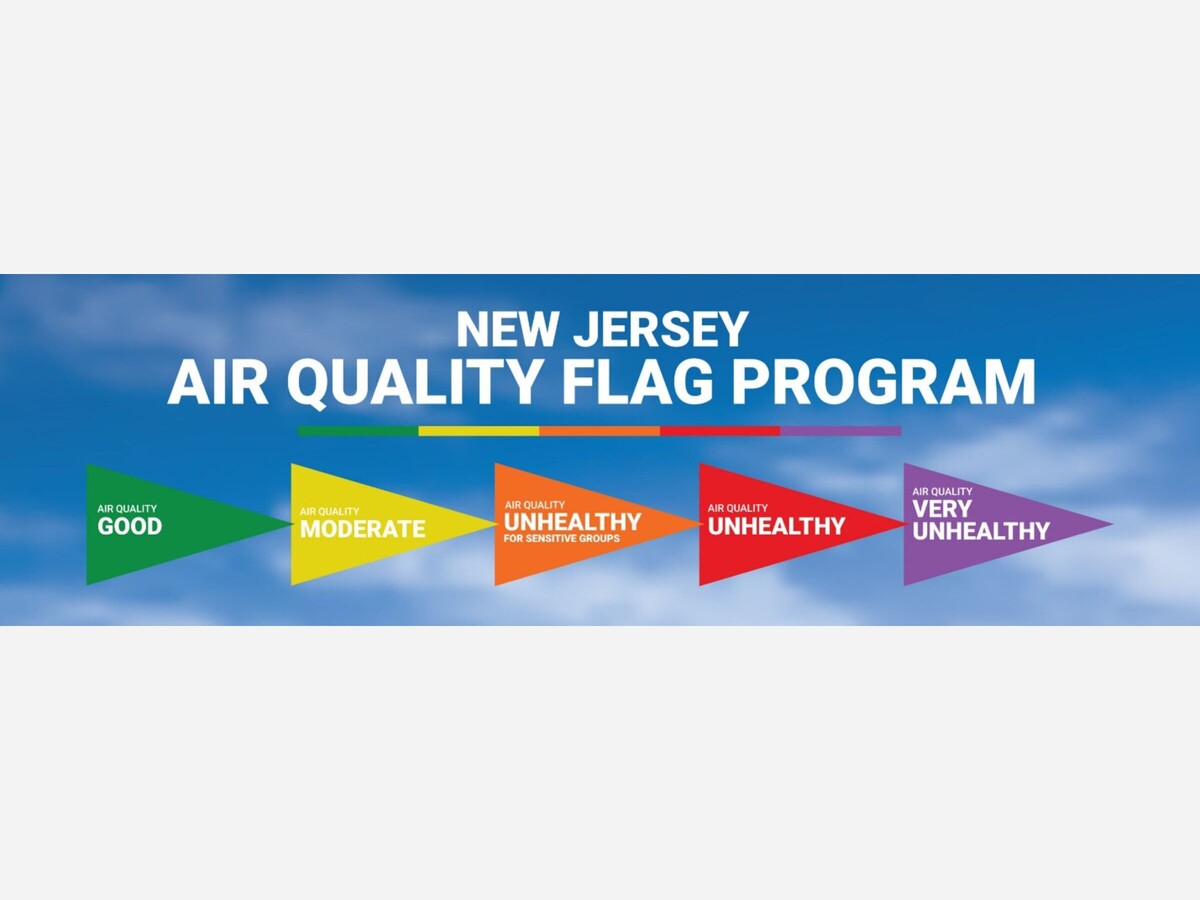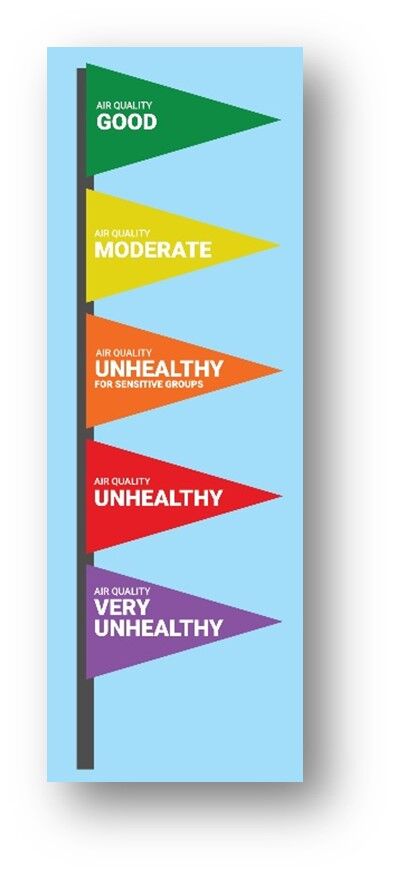Image


The Department of Environmental Protection is launching a color-coded flag system to notify New Jersey residents of outdoor air quality conditions due to the increase in exposure to air pollution.
“The New Jersey Air Quality Flag Program is designed to protect public health by encouraging communities and organizations to display a specific flag each day based on that day’s air quality forecast.” – NJ DEP

Each of the five colored flags matches the color system of the US Environmental Protection Agency’s Air Quality Index, corresponding to potential health impacts and actions to take to reduce possible effects. The program aims to advise the public on what, if any, precautions they should take while outdoors, based on the day’s air quality.
“Information is power, and it is our job to help empower all New Jersey communities to protect their health and environment,” Commissioner LaTourette said. “This easy-to-follow Air Quality system is yet another tool from the Murphy Administration to protect and improve the health and well-being of all New Jersey communities. When our fellow residents are well-informed about air quality conditions, they can take the necessary precautions, like reducing certain outdoor activities, during poor air quality circumstances.”
May 2 through May 6 marks Air Quality Awareness Week and coincides with the beginning of the ozone season, a time of year when outdoor ozone levels reach unhealthy levels.
Unhealthy ozone levels can bring on asthma attacks and adversely affect the health of at-risk individuals, including those with respiratory and heart issues, older adults, young children, and people who are active outdoors.
Ground-level ozone is a respiratory irritant formed by the interaction of certain pollutants and sunshine. Ground-level ozone has been linked to cardiovascular disease and premature death. “It remains the most persistent criteria pollutant problem in New Jersey and the Northeastern United States.”
People sensitive to poor air quality conditions should be mindful of symptoms such as coughing and shortness of breath.
While outdoors:
Organizations that participate in the colored-flag program will receive daily air quality forecasts between 10 and 11 a.m. via an email or text alert system known as Enviroflash.
The air quality forecast will be based on the Air Quality Index, which reports daily air quality levels for ozone and fine particulate matter, or PM2.5. New Jersey’s air quality levels are compared with the pollutant’s National Ambient Air Quality Standard.
“We’ve had a rough, few years dealing with health threats that float around undetectable in the air, but in the case of air pollution, we have the ability to detect potential threats,” Trenton Mayor Reed Gusciora said. “Now we will have the tools to better communicate those potential threats to our residents. We often don’t consider air quality when planning outings or long stretches outdoors, but this will be a visible reminder that the air we breathe is as important as the food we eat and the water we drink. It’s hard to defend against invisible threats, and by flying these colors we bring damaging air quality into the light of day.”
-
GREEN: Good air quality.
YELLOW: Moderate air quality.
ORANGE: Unhealthy air quality for sensitive groups such as children, people with respiratory and cardiovascular ailments, people who are active outdoors, and older adults.
RED: Unhealthy air quality.
PURPLE: Very unhealthy air quality.
-
Program participants must be in New Jersey. Schools, senior centers, summer camps, and daycare centers are eligible to partner with the DEP and receive free flags and educational materials about the program.
For more information or to sign up for the program, click here.
Clean Air Initiatives In NJ:
Among recent key initiatives are the 2019 Energy Master Plan, the 2020 New Jersey Global Warming Response Act 80 x 50 Report, and the New Jersey Protecting Against Climate Threats (NJ PACT) regulatory reforms.
Historically, New Jersey was one of the first states in the nation to adopt an air pollution control law with the 1954 passage of the New Jersey Air Pollution Control Act, which established the framework for the state’s air pollution standards and goals.
New Jersey residents are encouraged to follow some simple common-sense tips to help improve air quality in their communities. These tips include:
For more information about the DEP’s Air Quality, Energy and Sustainability Program, click here.
Follow Morristown Minute on Instagram and Twitter for more local and state updates.